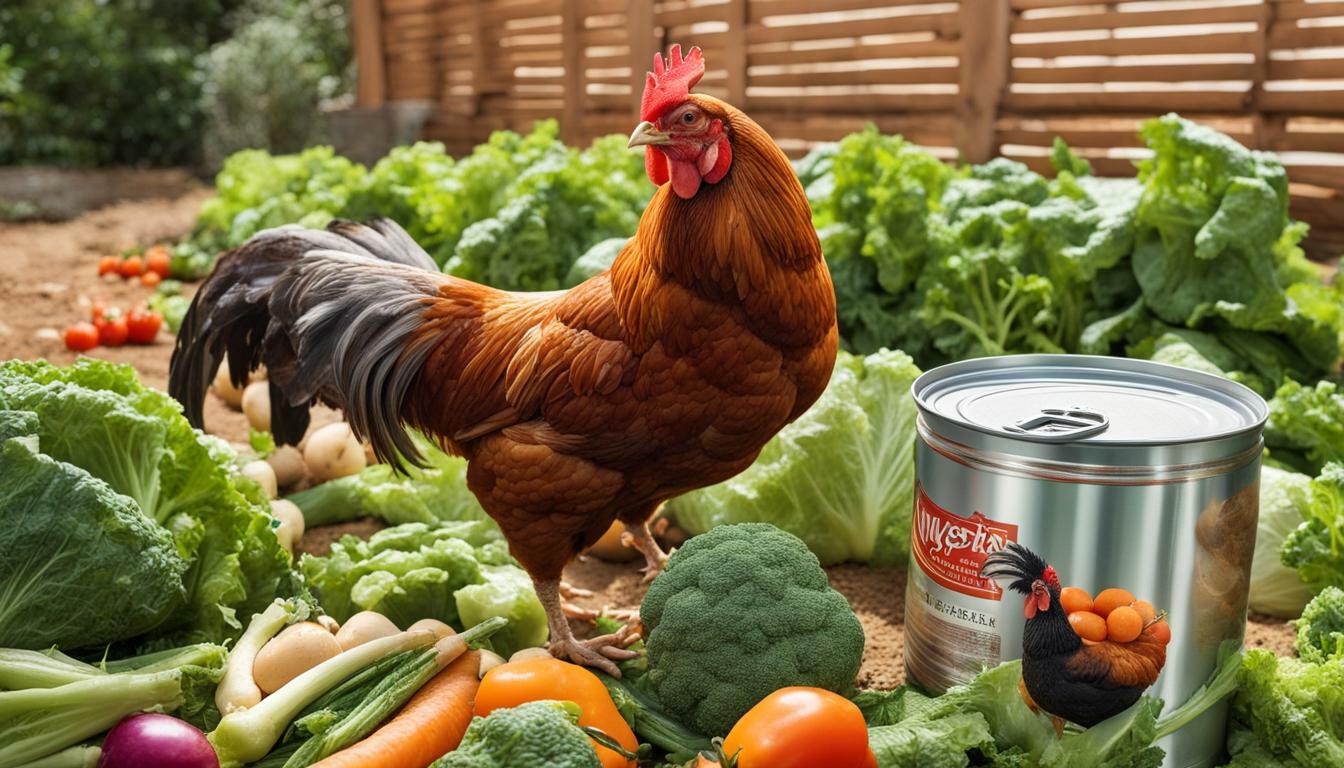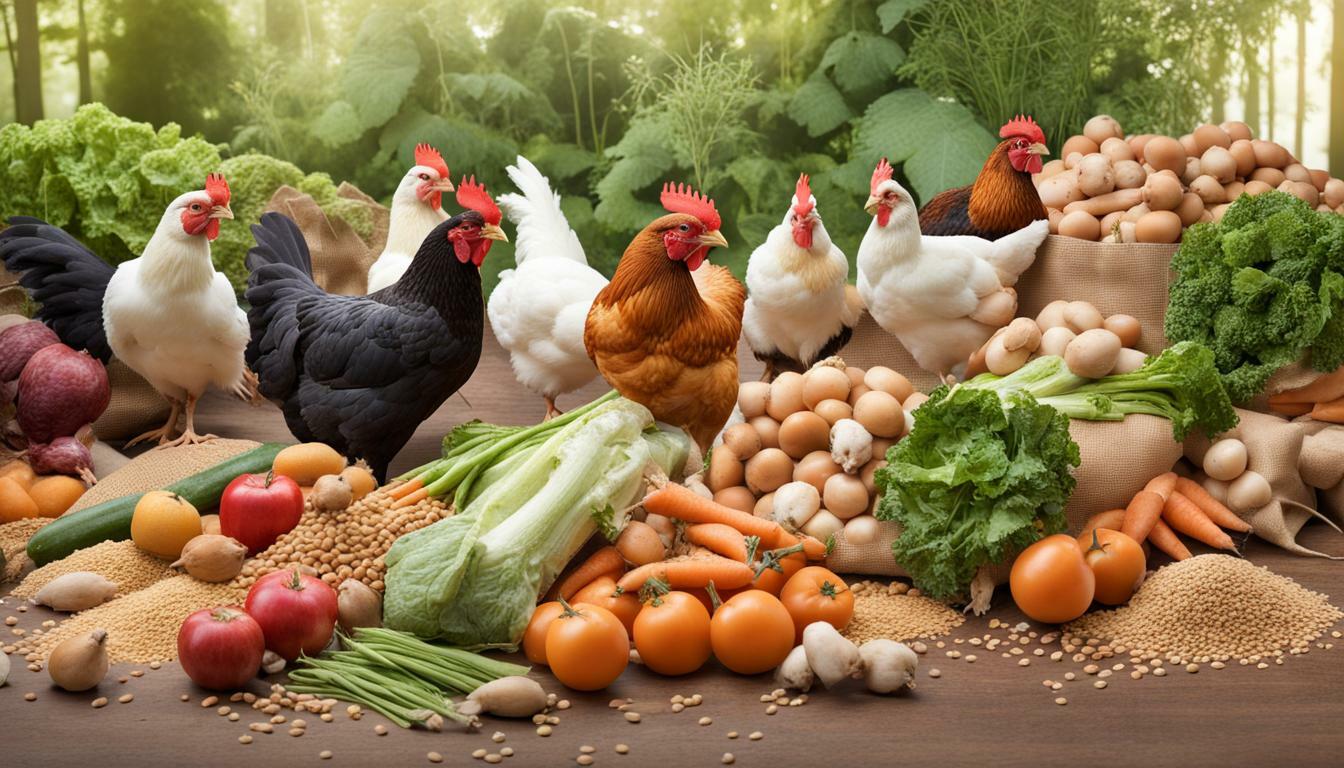Can Chickens Eat Butternut Squash? Guide for Fowl Feeding

Table of content:
- Is Butternut Squash Good for Chickens?
- Can Chickens Eat Butternut Squash Raw?
- How Much Butternut Squash Can Chickens Eat?
- What Part of Butternut Squash Can Chickens Eat?
- Should You Cook Butternut Squash for Chickens?
- Is Butternut Squash Safe for Chickens?
- Do Chickens Like Butternut Squash?
- How Do You Feed Butternut Squash to Chickens?
- Can You Feed Chickens Butternut Squash Skins?
- Can I Give My Chickens Butternut Squash Everyday?
- Conclusion
Butternut squash is a type of winter squash that is commonly grown in home gardens and backyard farms. It has an edible orange flesh and tan skin. Butternut squash contains many beneficial vitamins, minerals and antioxidants. This has led many chicken owners to wonder: can chickens eat butternut squash?
The short answer is yes, chickens can safely eat butternut squash in moderation. Butternut squash provides important nutrients and makes a healthy, natural treat for chickens. Here’s what you need to know about feeding butternut squash to chickens.
Is Butternut Squash Good for Chickens?
Butternut squash is highly nutritious for chickens. It contains key vitamins and minerals that chickens need in their diet:
- Vitamin A – supports eye health and egg production
- Vitamin C – boosts immunity
- Vitamin E – aids reproduction
- Thiamine – converts food into energy
- Niacin – maintains nervous system health
- Vitamin B6 – supports red blood cell formation
- Folate – assists with DNA formation
- Phosphorus – helps form bones and eggshells
- Potassium – regulates fluid levels
- Copper – assists in iron absorption
- Manganese – involved in bone/egg health
- Dietary fiber – promotes digestion
Butternut squash also contains beneficial antioxidants like beta-carotene, lutein and zeaxanthin that can boost chicken health and egg quality. The vitamin A in butternut squash is one of the main reasons it’s so beneficial for chickens.
Overall, the nutritional profile of butternut squash makes it a healthy and nutritious food for chickens. It provides key vitamins, minerals, antioxidants and fiber when consumed in moderation.
Can Chickens Eat Butternut Squash Raw?
Chickens can eat raw butternut squash, but it’s generally better to cook it first.
The tough, hard rind of raw butternut squash can be difficult for chickens to digest. Cooking softens the rind and flesh, making it easier to consume and absorb the nutrients.
Lightly cooking butternut squash also helps release more of the beneficial beta-carotene. This antioxidant is best absorbed from cooked, not raw squash.
Chickens may eat small pieces of raw butternut squash if sufficiently hungry. But for optimal nutrition and digestibility, it’s advisable to steam, bake or boil butternut squash before feeding it to chickens.
How Much Butternut Squash Can Chickens Eat?
Butternut squash can be fed to chickens several times a week in moderate portions.
As a treat, chickens can eat 1-2 cubes (1-inch size) of cooked squash 2-3 times per week. This provides beneficial nutrition without overdoing it.
When feeding larger amounts of butternut squash, adjust the diet to reduce other sources of vitamin A like carrots or sweet potatoes. Too much vitamin A can be toxic and cause health issues in chickens.
Avoid feeding chickens butternut squash every day for prolonged periods. The high vitamin A content could lead to toxicity when consumed daily in large quantities over time.
Moderation is key when feeding vitamin A-rich foods like butternut squash. Monitor intake and limit treats to a few times per week for a healthy, balanced diet.
What Part of Butternut Squash Can Chickens Eat?
Chickens can eat all parts of the butternut squash, including the flesh, skin and seeds. However, it’s best to remove the stringy fibers and hard rind before feeding it to chickens.
The orange flesh of the butternut squash contains the most nutrients and is the easiest part for chickens to digest. The flesh can be cut into small cubes or mashed for easy eating.
The outer skin of the squash is also edible. It contains beneficial fiber and vitamins. However, the skin should be cooked well to soften it before feeding to chickens.
Butternut squash seeds are a tasty, protein-rich treat for chickens. Roasting brings out their nutty flavor.
Avoid feeding chickens the raw, tough strings of unpeeled squash. Removing these fibrous strings makes the squash easier to digest.
Overall, chickens can eat all edible parts of a butternut squash, as long as it’s prepared properly. Focus on the soft, cooked flesh but also include skin and roasted seeds.
Should You Cook Butternut Squash for Chickens?
It’s best to cook butternut squash before feeding it to chickens. Light cooking helps soften the flesh and skin. It also enhances the nutritional value of the squash by making vitamins and antioxidants more bioavailable.
Some easy ways to cook butternut squash for chickens include:
- Baking – Cut in half, drizzle with oil and roast cut-side down until soft.
- Steaming – Chop into chunks and steam until tender.
- Boiling – Peel, chop and boil in water until soft enough to mash.
- Mashing – Cook and mash with a fork to make an easy “porridge”.
- Pureeing – For young chicks, blend cooked squash into a smooth puree.
Aim for the squash flesh to become very soft and tender during cooking. The skin should also be soft enough that it’s easy to pierce with a fork.
Cooked butternut squash can be served cubed, mashed or pureed. Mixing it with cooked grains or greens can encourage picky eaters to try it.
Is Butternut Squash Safe for Chickens?
Yes, butternut squash is safe for chickens to eat. However, a few precautions are advised:
- Feed in moderation to avoid vitamin A toxicity.
- Introduce new treats slowly to check for allergies.
- Chop/mash well and remove strings to prevent choking hazards.
- Cook thoroughly to enhance digestibility and nutrition.
Monitor the droppings after feeding butternut squash. Loose droppings or diarrhea could indicate digestibility issues with the vegetable. In this case, reduce the amount fed.
Avoid feeding moldy or rotten squash, as this could make chickens sick. Also do not feed raw, uncooked squash strings and fibers, which may obstruct the digestive tract.
When fed properly in moderation, butternut squash is a delicious and nutritious treat that most chickens will enjoy and digest without issues. Follow basic safety precautions and supervise feeding to prevent problems.
Do Chickens Like Butternut Squash?
Most chickens love butternut squash and will eat it readily. The sweet, slightly nutty flavor of butternut squash appeals to chickens’ taste buds.
Some ways chickens show their enjoyment of butternut squash include:
- Enthusiastically pecking and eating the treat
- Comb and wattles turning reddish-pink (a sign of contentment)
- Soft, happy clucking sounds while eating
- Returning frequently to the food dish for more
- Pushing and shoving flockmates for access
Keep in mind that some picky eaters may ignore or avoid new foods, even if they are nutritious. Try serving butternut squash multiple times, even mixing it with familiar foods to encourage tasters.
Monitor any decreased appetite or treat avoidance. If a chicken refuses butternut squash for multiple days, remove it and try the vegetable again later. But most chickens find the sweet flavor and soft texture of cooked squash irresistible.
How Do You Feed Butternut Squash to Chickens?
Follow these tips for successfully feeding butternut squash to chickens:
- Wash the squash thoroughly before preparing to remove dirt and bacteria.
- Cut the squash in half lengthwise and scoop out seeds and stringy pulp.
- Place halves cut-side down in a baking dish with 1/2 inch of water.
- Bake at 400°F for 45-60 minutes until very tender when pierced with a fork.
- Let cool, then scoop flesh off the skin into a bowl. Mash flesh with a fork to break it up.
- Chop or cube the mashed flesh into bite-sized pieces for chickens.
- Sprinkle a few tablespoonfuls in their feed dish or directly on the ground.
- Start with 1-2 cubes per chicken. Slowly increase over time while monitoring intake.
- Store extra cooked squash in the refrigerator for up to 5 days and reheat to serve again.
Preparing butternut squash by roasting or steaming it whole retains the most nutrients. Serve it mashed, chopped or cubed for easy eating. Introduce it slowly and limit treats to a few times a week for optimal health.
Can You Feed Chickens Butternut Squash Skins?
The outer skins of butternut squash can be fed to chickens after thorough cooking. The skins contain beneficial fiber and nutrients. However, the thick, tough rind is difficult for chickens to digest raw.
To serve squash skins:
- Wash and scrub the skin well before cooking.
- Roast or boil the whole squash until skins are tender when pierced with a fork.
- Allow to cool until skins are easy to peel off the flesh.
- Chop the peeled skins into bite-sized pieces.
- Mash or grind the skins further if they seem fibrous or tough.
- Mix into feed, sprinkling 1-2 skins per chicken as an occasional treat.
Well-cooked squash skins provide extra nutrition and fiber. But avoid giving chickens raw, uncooked skins or large, indigestible pieces. Steam or boil the skins thoroughly until very soft before feeding out.
Can I Give My Chickens Butternut Squash Everyday?
It’s best not to feed chickens butternut squash every day. Butternut squash should be limited to a treat just a few times per week.
The reason is that butternut squash is very high in vitamin A. While this vitamin provides excellent nutrition for chickens, too much can be toxic. Consuming vitamin A daily over prolonged periods may cause adverse health effects in chickens.
Potential issues from excessive vitamin A include:
- Reduced appetite and growth
- Joint swelling and lameness
- Scaly, itchy skin
- Respiratory distress
- Increased mortality risk
To prevent vitamin A toxicity, limit butternut squash treats to just 2-3 times per week. Closely monitor chickens’ intake and health if feeding squash daily for more than 1-2 weeks.
Rotate butternut squash with other vitamin A foods like sweet potatoes, carrots, and dark leafy greens. A varied, balanced diet with different treats is healthiest for chickens long-term.
Conclusion
Butternut squash is a nutritious, beneficial vegetable that most backyard chickens will readily enjoy as an occasional treat. Its vitamin A, fiber and antioxidants offer health advantages when consumed in moderation. Cook butternut squash thoroughly before feeding it to chickens to enhance digestibility and nutrition absorption. Limit intake to just a few times per week to prevent possible vitamin A toxicity. With proper precautions, butternut squash can be a tasty, healthy addition to a balanced backyard chicken diet.
Welcome. I’m Adreena Shanum, the proud owner of this website, and I am incredibly passionate about animals, especially poultry. I founded adreenapets.com as a labor of love, stemming from my desire to share my knowledge and experiences with poultry enthusiasts worldwide.




